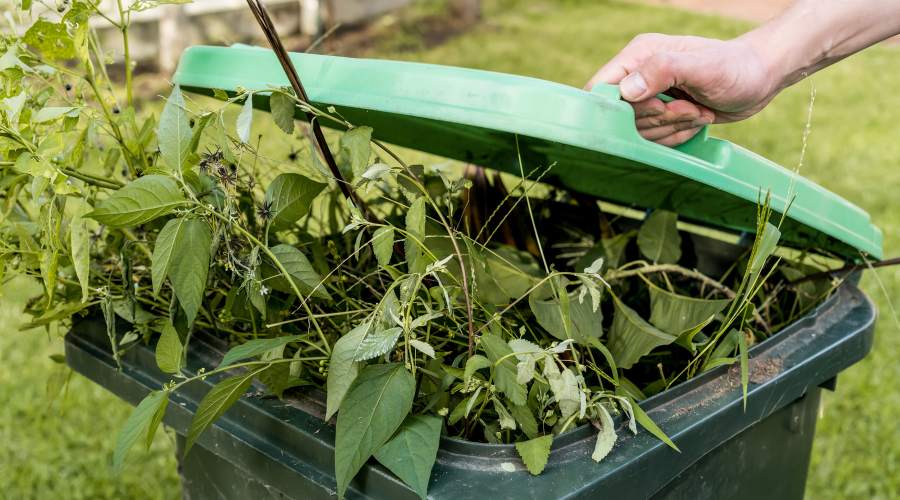Types of Rubbish That Can Be Removed
Taking Out the Trash: Major Rubbish Categories
Dealing with waste is part of everyday life. But not all rubbish is created equal. Different types of waste require different removal and disposal methods.
In this article, we’ll look at the main categories of waste and junk that you might need to get hauled away.
1. Organic Waste and Garden Waste
This type of waste comes from plants, fruits, vegetables, and other biodegradable materials. Typical examples include:
- Food scraps and spoiled food waste
- Yard trimmings like grass clippings, leaves, twigs
- Prunings from trees and shrubs
- Crop residues from gardens and farms
Organic waste is great for composting. But if you have more than you can use, you’ll want to arrange for pickup and removal. Some municipalities offer special green waste collection. Or you can hire a junk hauling service to take it to a composting facility. Just don’t send it to the landfill.
2. Liquid Waste
It can’t simply be tossed in the trash. It requires proper disposal. Examples include:
- Used cooking oil, dirty water and grease
- Paints, thinners, solvents
- Motor oil, brake fluids, and other automotive fluids
- Pesticides and herbicides
- Cleaning agents and other hazardous household items
If you generate liquid waste in small quantities, check for local household waste drop-off sites. For larger amounts, you’ll need a professional waste disposal service. Never dump liquids down the drain or in the ground that can cause environmental damage.
3. Hazardous Waste
This waste contains dangerous chemicals or substances. Besides liquid harmful waste, other types include:
- Batteries, aerosol cans
- Fluorescent light bulbs
- Medical sharps and needles
- Beauty products with chemicals like hair dye
- Mercury thermometers and thermostats
Electronics like TVs, computers, and phones also contain hazardous materials. Look for e-waste recycling programs in your community. And be sure to keep toxic items in their original labeled containers for safe disposal.
4. Medical Waste
It deserves special mention due to the potential human health risks. This includes:
- Used needles, syringes, lancets
- Gauze, bandages, gloves, masks with bodily fluids or blood
- Medication vials and IV bags
- Disposable gowns and sheets
Biomedical waste generated at home requires responsible disposal. Hospitals and medical facilities have specialized processes. But at home you may need to arrange for pickup by a qualified medical rubbish removal company. Never put this out with the regular trash.
6. Recyclable Waste
If your city or town has recycling pickup, make sure to take advantage. Typical recyclable solid waste include:
- Paper product and cardboard
- Plastic containers and bottles
- Aluminum and steel cans
- Glass bottles and jars
Check what types of paper and plastic waste are accepted. Make sure containers are empty and rinse them out before reprocessing. Flatten cardboard boxes. Eco-friendly disposal takes these materials out of the waste stream and gives them new life!
7. Construction Waste
Home improvement and remodeling projects generate a lot of waste. Typical construction and demolition debris includes:
- Wood scraps
- Drywall
- Bricks, concrete, asphalt
- Roofing shingles, metals and tiles
- Siding, windows, doors
- Plumbing fixtures and pipes
- Wiring and electrical components
- Insulation
- Packaging like pallets and crates
Take care to separate hazardous construction waste like lead paint and asbestos for safe disposal. The rest can likely go to a construction and demolition (C&D) landfill or recycling facility in your area.
Pro Tip:
Beyond typical residential waste, larger streams like solid rubbish and industrial waste require heavy duty disposal solutions. Consult qualified haulers for large-scale removal.
8. Electrical Waste
With so many gadgets and electronics, e-waste has become a major issue. Common types are:
- Computers and accessories
- Phones, tablets, and mobile devices
- Televisions and displays
- Audio equipment
- Appliances like microwaves and air conditioners
E-waste contains toxic substances like mercury and lead. Donate or recycle electronics responsibly when possible. If items are broken beyond repair, use a specialty e-waste hauler for safe disposal.
The Bottom Line
As you can see, there are many categories of waste and rubbish. Being aware of the different waste types is key for proper sorting, recycling, and disposal.
Consult local guidelines and regulations in your area. Use qualified professionals for specialized waste like medical, hazardous, or construction debris.
And remember, one person’s trash is another’s treasure! Reuse, repurpose, and recycle as much as you can.


